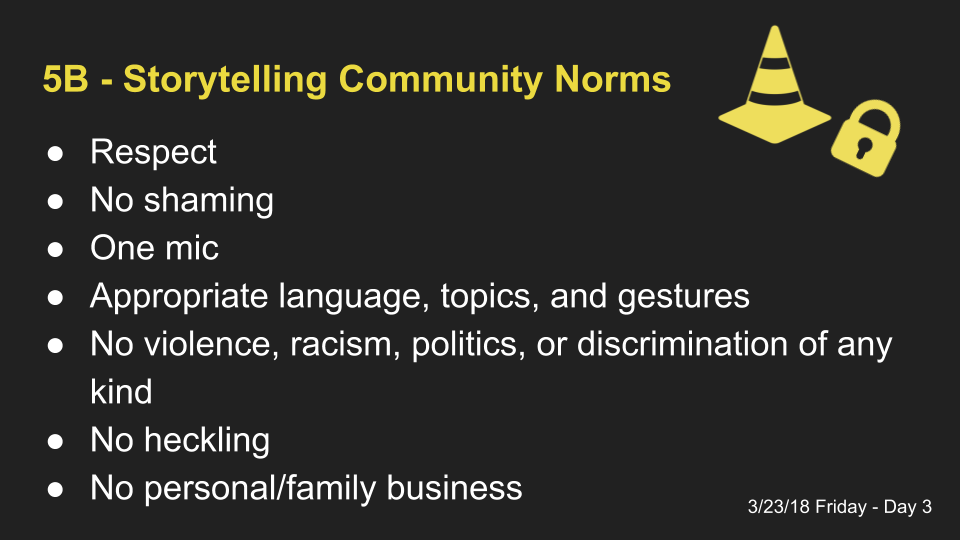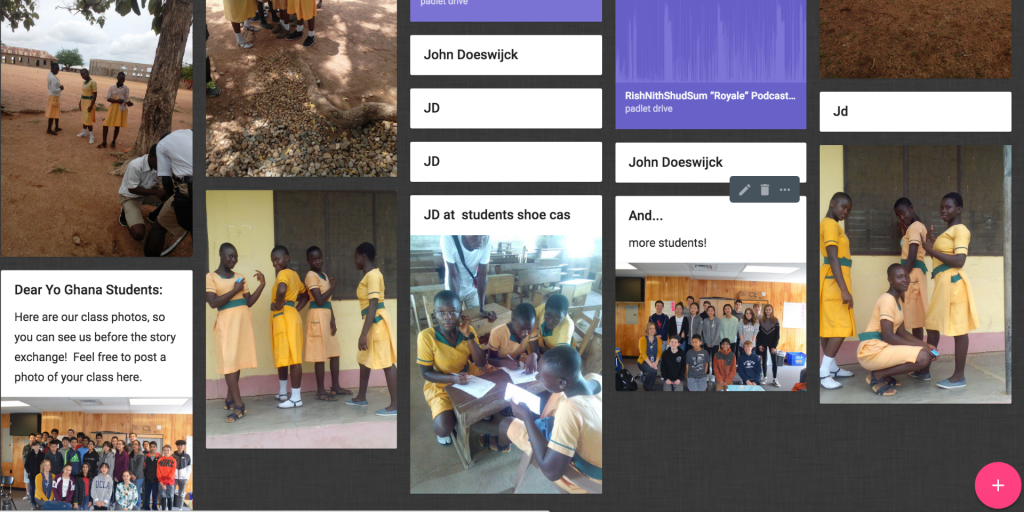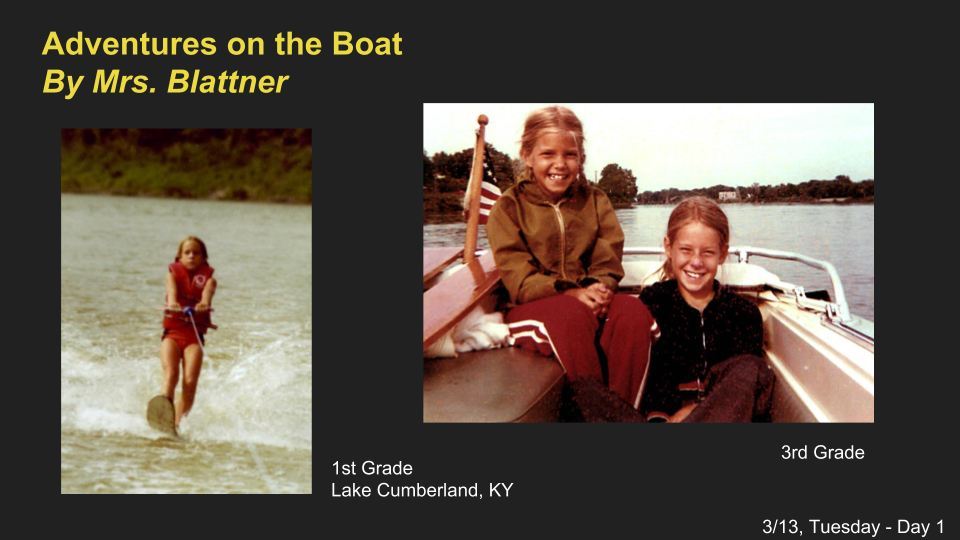This year I piloted THE MOTH’s secondary curriculum in Media Lab 8 classes. I have always included a digital storytelling and podcasting unit of some kind, and I am a follower and enthusiastic listener of THE MOTH. In addition to my passion for storytelling, my personal goal this year was to globally connect my students through one meaningful project. The power of story to open windows to the world and hold up mirrors to universal human experiences has no limits. A digital storytelling exchange with a global partner seemed to be the perfect pairing for these goals.
Process: My students moved through an ideation and design process, and I relied on THE MOTH secondary curriculum to support this journey.  First, through a collaborative process, we set norms or ground rules and expectations for the kinds of stories we would tell, as well as how to treat each other with respect and kindness. This gave students clear expectations and ownership over their storytelling community. We also stayed within the tradition of THE MOTH, telling true stories live. I kicked things off by modeling a true and live story with my “Adventures on the Boat” story:
First, through a collaborative process, we set norms or ground rules and expectations for the kinds of stories we would tell, as well as how to treat each other with respect and kindness. This gave students clear expectations and ownership over their storytelling community. We also stayed within the tradition of THE MOTH, telling true stories live. I kicked things off by modeling a true and live story with my “Adventures on the Boat” story:
I shared with students my memories of learning how to water ski, as well as time on our family boat. I told the story live, demonstrating some oral storytelling techniques, using expressive voice, gestures, and repetition.
We then embarked upon the ideation process with interactive and collaborative games, helping students get comfortable telling their life stories, as well as helping them to find a topic that they really want to tell for their final moth-inspired story. We focused on three themes, “self-discovery,” “the world around me,” and “a place to call home”. We also watched and listened to several Moth stories, as well as other stories with viewpoints that help students learn about other teens’ life experiences around the world, like seventeen-year old Khaldiya’s story as a Syrian refugee, Alfonso Lacayo’s Moth story, “The Bad Haircut,” and teen activists Joshua Williams and Marley Dias, to name a few. As students gathered ideas and inspiration, a parallel and meta-agenda took shape, combatting the “dangers of a single story,” hopefully opening up the students’ minds and hearts to voices and perspectives beyond their own and also encouraging themes of social justice.
Global Partnership: A teacher in our school has a connection with the non-profit organization, Yo Ghana. Yo Ghana is dedicated to connecting students in the Pacific Northwest with students in Ghana. Our 6th grade Humanities students already participate in a pen pal project with students in Ghana. Because of our school’s previous connections, we were able to make contact with a school in Ghana for our story exchange. I decided to use Padlet as the tool to share our stories, as it allows real-time recording, collaborative editing, images, and a variety of media uploads. My goal was to use an interface that presented few technical challenges for all.
Media Skills: A wide range of media skills were introduced to students, as well working within storytelling production teams. Students recorded their stories with condenser microphones on iPads, using Garageband. Here are some of the skills we explored:
- Team collaboration
- Storyboarding
- Garageband: How to use the app, balancing sound, working with multiple sound tracks
- Using sound effects and importing creative commons music
- Respect for intellectual property and how to cite cc music
- File formats
- Podcasts: We examined the format for a podcast and create bumpers, creative sponsor spots, and explored related vocabulary, including RSS, podcatchers, syndication, and feed.
Reflections: Global collaborations are challenging, especially with large time zone differences. The effort is truly worth the exploration of multiple perspectives and life experiences, expanding the walls of our classroom and our lens through which we see the world. We started reaching out to Yo Ghana in January, and we did not start the exchange until April. It takes time! Technology can also be a challenge, as our partners do not have the same access that we have here. I hope to continue the relationship with Yo Ghana next and year and build upon the work we started this year.

